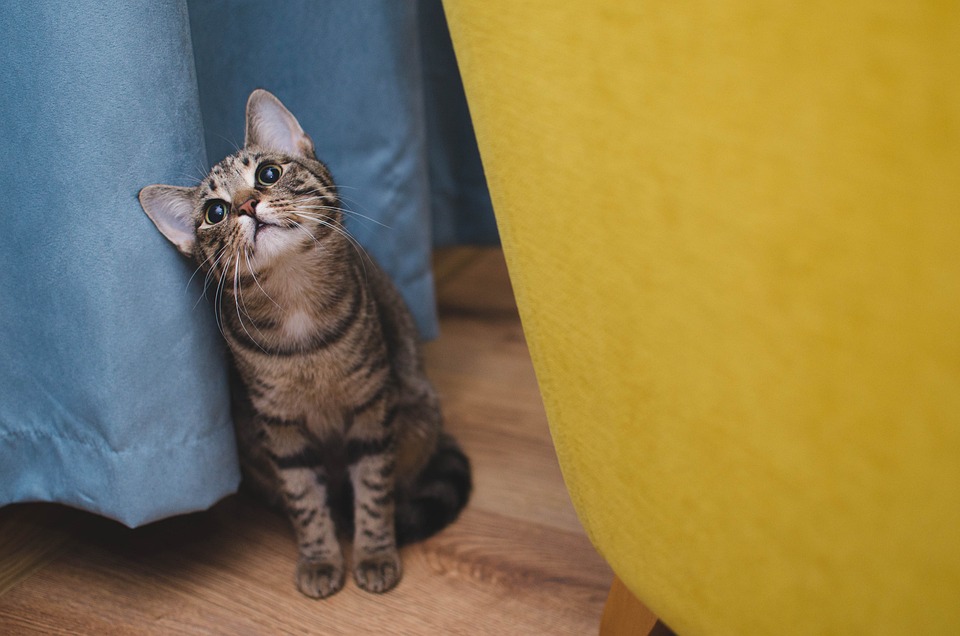The Importance of Socialization for Cat Mental Health
Introduction:
Cats are often considered independent creatures, but just like humans, they thrive on social interaction. Socialization plays a crucial role in maintaining a cat’s mental health and overall well-being. In this article, we will explore the significance of socialization for cats and provide valuable insights into how to ensure your feline companion receives the socialization they need.
I. Understanding Cat Socialization
1. What is cat socialization?
Cat socialization refers to the process of exposing cats to different people, animals, and environments in a positive and controlled manner. It helps them develop the necessary skills and confidence to navigate the world around them.
2. Why is socialization important for cats?
Socialization is important for cats as it helps them build trust, reduce fear, and develop social skills. It also enhances their ability to adapt to new situations and reduces the likelihood of behavior problems.
3. When should socialization start for kittens?
Socialization should ideally start as early as possible, preferably between 2 to 7 weeks of age. This is known as the critical socialization period, during which kittens are more receptive to new experiences and less likely to develop fear or aggression towards people or animals.
4. Can adult cats be socialized?
Yes, adult cats can be socialized, although it may take more time and patience compared to kittens. With consistent positive interactions and gradual exposure to new experiences, adult cats can learn to trust and become more comfortable in social situations.
II. Benefits of Socialization for Cats
1. Reduction of stress and anxiety
a. How socialization helps alleviate stress
Socialization helps cats feel more secure and less anxious in unfamiliar situations by exposing them to various stimuli and teaching them coping mechanisms.
b. The impact of a socialized environment on anxiety levels
A well-socialized cat is less likely to experience anxiety and stress-related behaviors, such as hiding, aggression, or excessive grooming.
2. Development of social skills
a. How socialization helps cats develop communication skills
Through socialization, cats learn to communicate effectively with humans and other animals, leading to healthier social interactions.
b. Role of socialization in promoting positive behavior
Socialization plays a vital role in shaping a cat’s behavior, teaching them appropriate ways to interact, play, and express their needs.
3. Prevention of behavior problems
a. How socialization can prevent aggression and fear-based behaviors
Proper socialization helps cats develop confidence and reduces the likelihood of aggression or fear-based behaviors towards people or other animals.
b. The link between socialization and litter box use
Socialized cats are less likely to develop litter box issues, as they learn appropriate elimination habits and are more comfortable in their environment.
III. Techniques for Socializing Cats
1. Gentle handling and positive reinforcement
a. How to introduce gentle handling to kittens
Gentle handling from a young age, such as petting, brushing, and nail trimming, helps kittens build positive associations with human touch.
b. The importance of positive reinforcement in socialization
Rewarding cats with treats, praise, or playtime for desired behaviors during socialization sessions helps reinforce positive associations and encourages bonding.
2. Controlled exposure to new experiences
a. Gradual introduction to new people and animals
Introduce your cat to new people and animals in a calm and controlled environment, allowing them to adjust at their own pace.
b. Controlled exposure to different environments and stimuli
Gradually expose your cat to different environments, sounds, and objects, ensuring they feel safe and comfortable throughout the process.
3. Playtime and interactive toys
a. Incorporating playtime as a socialization tool
Engaging in interactive play sessions with your cat helps build trust, strengthens the bond between you, and provides mental stimulation.
b. Recommended interactive toys for socialization
Toys that encourage chasing, pouncing, and problem-solving can help simulate hunting behavior and provide a positive outlet for energy.
IV. Frequently Asked Questions (FAQs)
1. Can I socialize my cat if they are already afraid of people?
Yes, with patience and positive reinforcement, it is possible to socialize cats that are afraid of people. Start with small, gradual interactions and allow them to approach at their own pace.
2. How long does it take to socialize a cat?
The time it takes to socialize a cat varies depending on their age, past experiences, and temperament. It can take anywhere from a few weeks to several months, or even longer for more fearful cats.
3. What if my cat doesn’t like other animals?
Not all cats enjoy the company of other animals. If your cat doesn’t like other animals, it’s important to respect their boundaries and provide them with plenty of individual attention and enrichment.
4. Can socialization help with my cat’s aggression issues?
Socialization can help reduce aggression in cats by increasing their confidence and teaching them appropriate ways to interact. However, if aggression persists, it is recommended to seek guidance from a professional behaviorist.
5. Is it possible to over-socialize a cat?
While socialization is important, it’s essential to respect your cat’s boundaries and not overwhelm them with too much social interaction. Pay attention to their body language and provide breaks when needed.
Conclusion:
Socialization is a crucial aspect of cat care that should never be overlooked. By providing opportunities for social interaction, you can significantly improve your cat’s mental health, reduce stress, and prevent behavior problems. Whether you have a kitten or an adult cat, it’s never too late to start socializing and reaping the benefits of a well-adjusted feline companion. Remember to be patient, use positive reinforcement, and seek guidance from professionals if needed. Your cat’s happiness and well-being depend on it.








